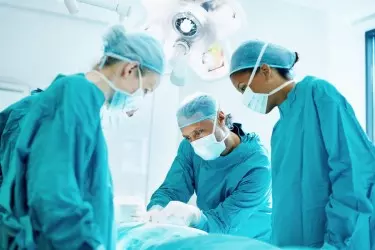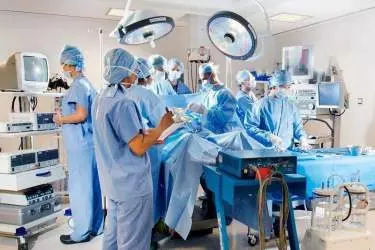- Home
- About Us
- Treatments
- Services
- Doctors
- Patients
- Careers
- Contact Us


Most of us have two kidneys which are bean shaped organs of the size of our fist located in the middle of the abdomen towards the backbone. The major function of the kidneys is to purify the blood and maintain blood pressure. Whatever food we eat has many impurities and chemicals in it. The food is absorbed by the intestines and the impurities enter the blood alongwith the nutrients like protein, fat, carbohydrates, vitamins and minerals. This blood is then supposed to be supplied to all the cells of the body through the heart but needs to be purified of the impurities before this happens. The blood passes through the kidneys which retain the impurities within the kidneys and pass the clean blood. The impurities which are retained in the kidneys need to be flushed out with the use of water which we drink so that they can enter the urinary bladder and ultimately excreted out of the body with the urine. People who do not drink enough water cannot flush out the impurities from their kidneys which manifest in the form of stones. The pain of kidney stone is felt towards the back and can be quite severe. Ultrasound scan of the KUB region would be able to diagnose the presence of kidney stones and any kind of infection in the kidney due to these stones. This infection is called hydronephrosis.

If the kidney stones are smaller than 10 mm in size then they can be flushed out with the use of medicines and water. The patient is advised to drink lots of water and these medicines will produce urine with pressure which pushes the stones from the kidney into the ureter and further to the urinary bladder. Medicines which can break the stones into smaller pieces are also prescribed. However if the stones are big in size and are causing hydronephrosis then they must be removed through surgery. The surgeon will make three small holes in the skin to reach the kidneys and crush the stones into smaller pieces. These stones can be extricated using the surgical equipments and some smaller particles can be flushed out through urine. The surgery for removal of the kidney stones is called Percutaneous Nephrolithotomy (PCNL). If kidney stones are not removed in time then the infection caused by them in the kidneys can result in kidney failure. The patient also has to bear significant pain from time to time due to the presence of stones in the kidney. A lot of people think that drinking beer can flush the kidney stones. This assumption is not entirely incorrect but the same effect is achieved without the use of alcohol by taking medicines which increase the urinary pressure.

Dr Pramod Prasad and Dr Chandrakant Kar have long experience in the treatment of kidney stones both medically and surgically. The cost of treatment using medicines is almost negligible and the medicines are quite cheap and water is free. However if you prefer to consume beer then the costs might be close to Rs. 300 per day for two bottles of beer and by the time the kidney stones are flushed out you might start liking the intoxication of beer. It is therefore better to stick to the medical management rather than going to the pub for alcoholic management. The PCNL surgery costs in the range of Rs. 45,000 - 60,000 depending on the category of room chosen by you. The hospital stay is 1-2 days and some patients might require a DJ stent to be placed in their kidney during the surgery. This stent is removed 3-4 months after the surgery. Most of the insurance policies do not cover this surgery within the first two years of the policy. However if you are holding an insurance policy which has been provided by your company then the surgery is covered from day one. You also have to check the room rent eligibility in your insurance policy to make sure that you get the complete claim amount and there are no deductions. If you opt for a higher category room than what you are eligible for, then you may have to bear some expenses for your treatment.

Sethi Hospital was setup in the year 1996 by the doctor couple of Dr. Ashok Sethi and Dr Pushpa Sethi in the city of Gurgaon. Initially the hospital offered services in the fields of Orthopaedics and Gynaecology but soon developed into a multi-specialty hospital offering complete range of secondary and tertiary level treatments. In the last 24 years, the hospital has treated more than 12 lac patients throught outdoor and indoor facilities. Sethi Hospital has won the trust of the patients on the basis of ethical and cost effective treatment. Middle class patients who have to self finance their medical treatment, find our pricing quite affordable for the quality of treatment given.

The state of art cutting edge medical technology deployed at Sethi hospital makes us a complete hospital for your medical treatment. Most of the patients who come for any kind of treatment normally require the facilities of ultrasound, colour doppler, echocardiography and digital x-ray within the hospital. Sethi hospital has all these facilities inhouse which means that the patient does not have to run from one place to another for getting the complete treatment. Inhouse pharmacy and pathology lab ensures that the attendants of the patients getting admitted at the hospital can have the peace of mind and do not have to run helter skelter.

The team of doctors at Sethi hospital are some of the most experiencd medical professionals in the city of Gurgaon. Almost all our doctors have more than 15-20 years of experience in their respective fields. The doctors at Sethi Hospital are always trying to improve the medical and surgical outcomes and take active part in continous medical education programmes. Our team of doctors are assisted by highly trained paramedics in the diagnostic field. Our Nursing Team efficiently carries out the doctor's instructions and provide compassionate care which speeds up the healing process. The Physiotherapy Team makes sure that your recovery is quick and complete.
Dr A.K.Sethi, Orthopaedic Surgeon at Sethi Hospital is talking about the surgical procedure for replacement of Knee Joints which are worn due to Osteoarthritis. Watch the Video.
Dr Pushpa Sethi, Gynaecologist is talking about the various treatment options available for Polycystic Ovaries - Lifestyle modification, Diet, Medicines and Surgical.